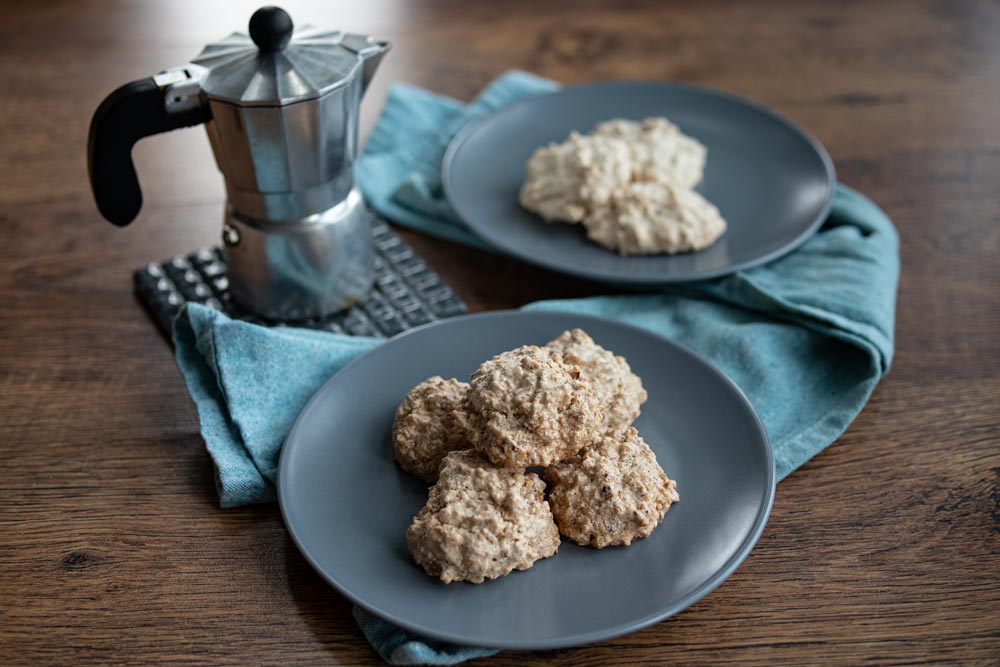
Brutti ma Buoni, meaning “ugly but good” in Italian, are crunchy-gooey meringue cookies with nuts; usually hazelnuts, but sometimes almonds. I don’t find them to be particularly ugly, but they are definitely good and addictive. While I intended to have just one with a strong batch of moka pot coffee, I swiftly finished 3 or 4 cookies. These cookies have everything: they are crisp on the surface, chewy in the center, crunchy and intensely hazelnut flavored.
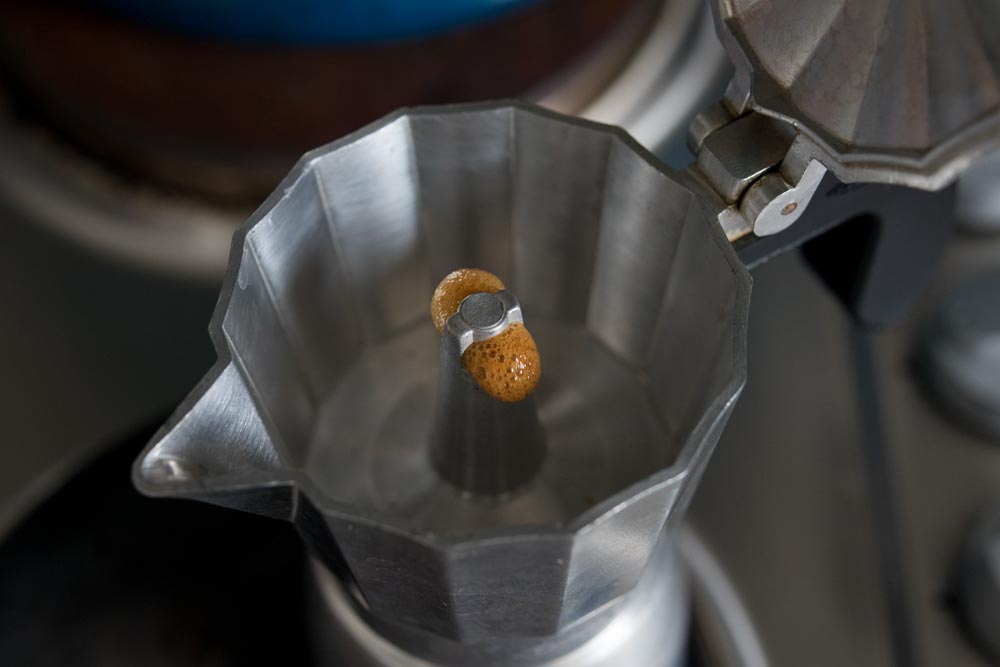
Their origin and true recipe are highly disputed and the cookies can be found all over Italy. I found versions claiming the true recipe is from the town of Gavirate in Lombardy. Another version claimed they are originally from Novara in Piedmont. Other recipes claim they hail from the Lazio region. They even have multiple names: Bruttiboni di Prato, Mandorlati di San Clemente and Brutti ma Buoni.
Regardless of where they truly originate, most recipes fall into two categories. Those that cook the meringue on the stovetop before baking, and those that skip the stovetop to cook just once in the oven. I tried both versions, and was surprised by my preference for the twice-cooked version. The cookies came out crisper on the outside and chewier in the middle. If you are short on time, or just want to reduce the amount of steps in the recipe, go ahead and skip the stovetop and use the exact same baking temperature and time.
While I can’t imagine skipping a step that fills the house with the smell of toasted hazelnuts, you can certainly use hazelnuts that you buy pre-toasted and chopped. Freshly roasted and chopped hazelnuts will have better flavor though, as the oils diminish over time.
While these are Italian cookies, the base is a French meringue. It is the simplest meringue, but the least stable. In this type of meringue, granulated sugar is gradually added directly to the whipping egg whites. It is generally not eaten raw and should be baked. French meringue is tender, light and fragile and best for cookies, dessert shells, mixing with nuts, or as a leavening agent in batters.
Egg whites have excellent foaming ability and can increase in volume by up to 8 times. The two main proteins in egg white ensure that they foam well, and subsequently resist collapsing when the water evaporates in the oven. To get maximum volume and expansion, use fresh, room-temperature egg whites and ensure the bowl and whisk are clean of any grease.
Sugar helps stabilize the foam and adds flavor. The amount of sugar depends on the desired texture and use of the meringue. Generally speaking, the harder the meringue, the higher the sugar content. For these brutti ma buoni, I’ve used a 2:3 ratio of egg white to sugar to give them enough structure without being too sweet.
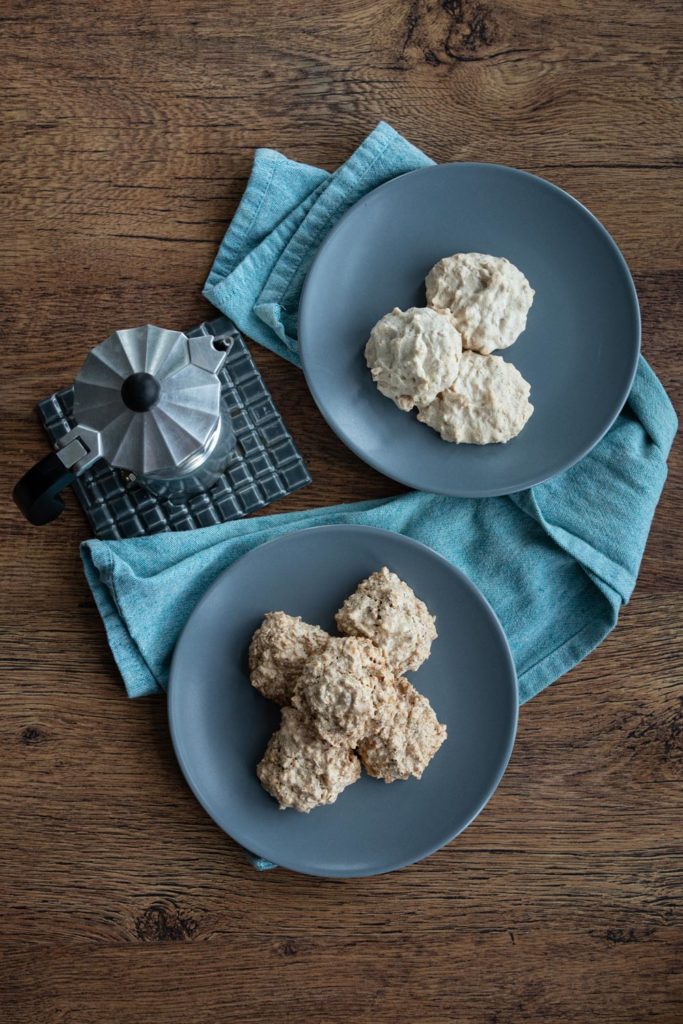
Ingredients:
Yields about 15 cookies.
80g egg whites (approximately 2 large eggs)
120g granulated sugar
1/8 teaspoon salt
1 teaspoon vanilla extract
egg whites from 2 large eggs
2/3 cup granulated sugar
1/8 teaspoon salt
1 teaspoon vanilla extract
Roast the Hazelnuts:
Preheat the oven to 200°C (400°F). Roast the hazelnuts for 12 minutes, until fragrant and the skins blister. Let the nuts cool slightly, then carefully transfer the nuts to a clean kitchen towel, wrap tightly, and rub them together to remove the skins. Don’t worry if not all the skin comes off.
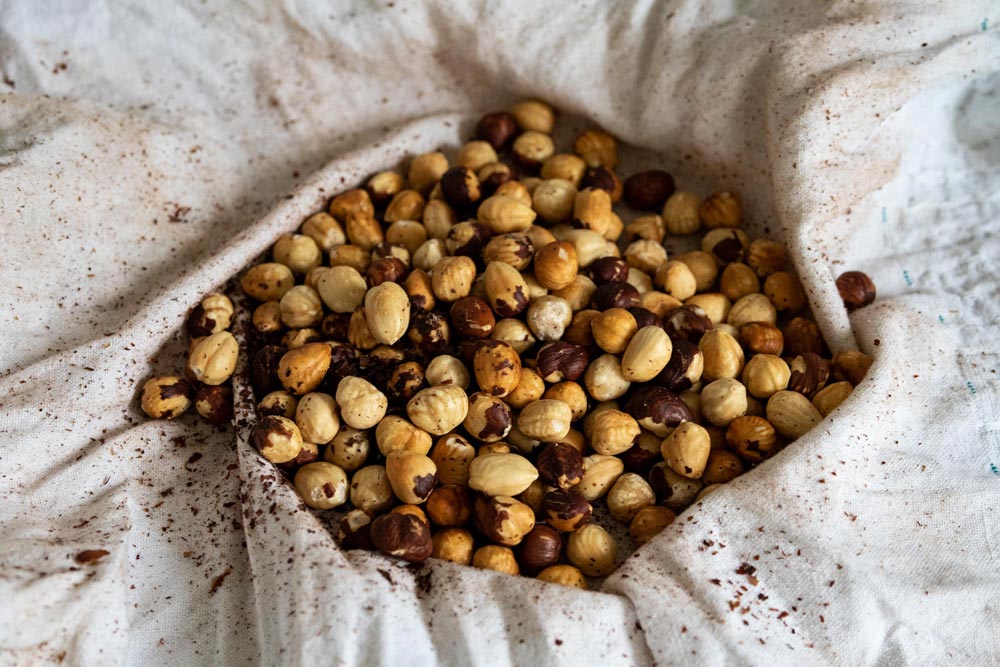
Chop the Hazelnuts:
Finely chop the hazelnuts in a food processor. If you don’t have a food processor, simply chop them on a cutting board with a knife. You don’t want large chunks, but be careful not to make hazelnut-butter either.
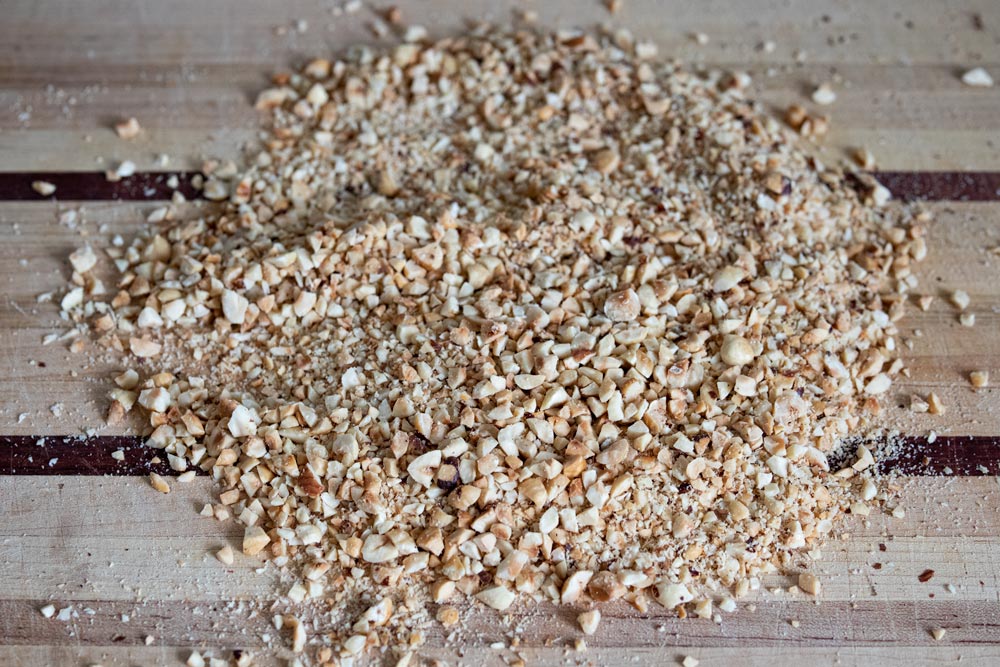
Make the Meringue:
In the bowl of a stand mixer, whisk the egg whites, salt and vanilla extract on high speed until the mixture is foamy and has quadrupled in volume, about 1-2 minutes. If you don’t have a stand mixer or an electric mixer, you can whisk by hand, but it will take much longer.
Gradually add the sugar with mixer still on high speed. Whip the mixture until stiff peaks form, about 3 minutes.
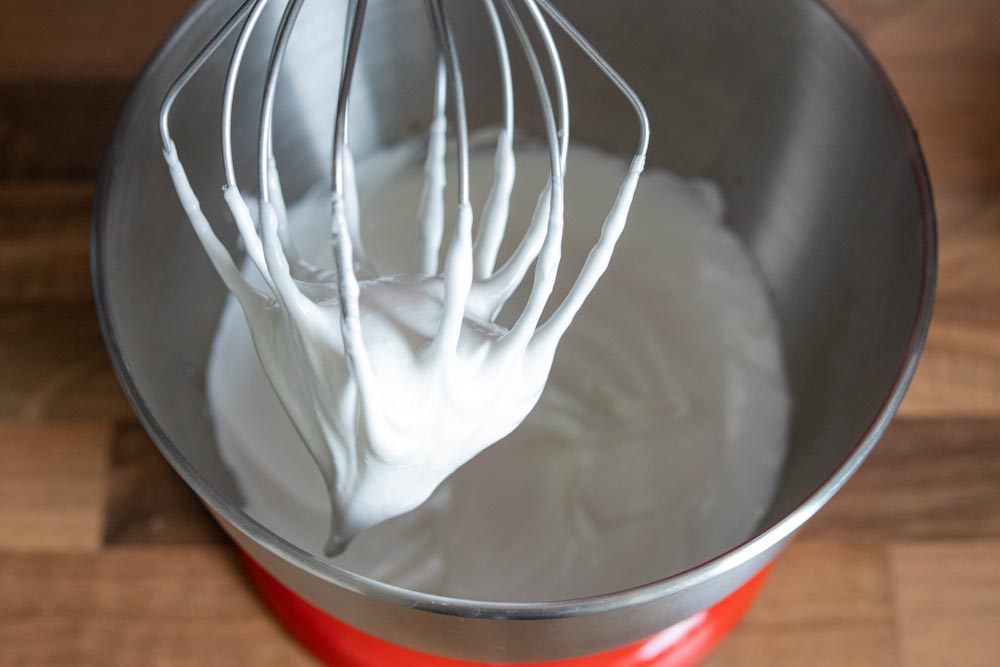
Mix in the Hazelnuts:
Add the hazelnuts to the meringue and gently fold by hand with a spatula to combine.
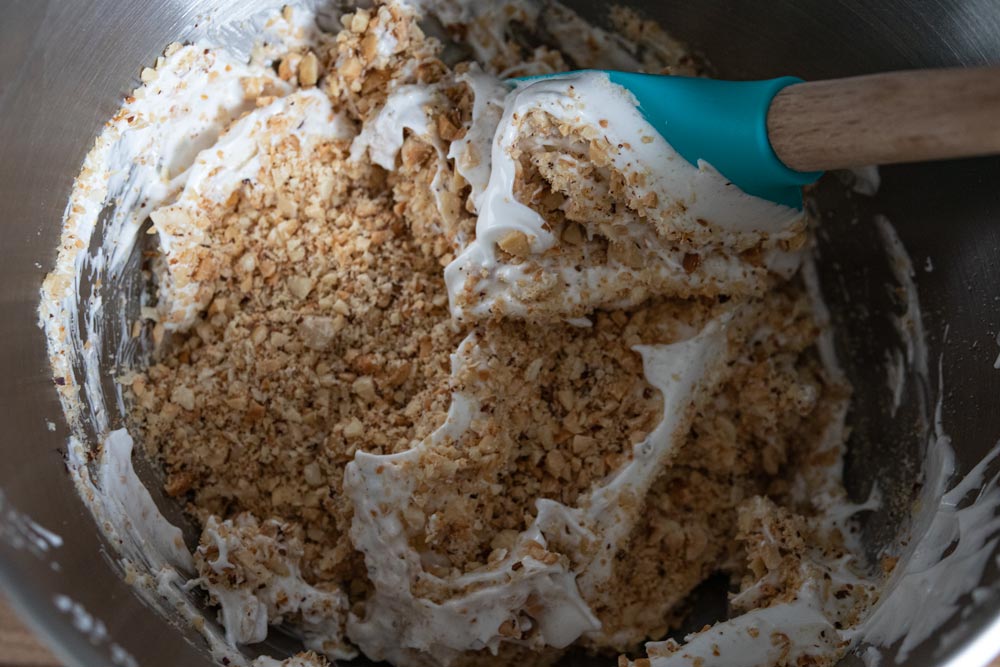
Cook the Meringue:
Gently transfer the meringue to a medium saucepan, and cook over medium heat for about 5-7 minutes, stirring constantly. The meringue will darken from bright white to a toasted brown. Take it off the heat and let it sit for 5 minutes.

Adjust the Oven Temperature:
Meanwhile, lower the oven temperature to 135°C (275°F).
Bake the Meringues:
Scoop rounded tablespoons of the meringue onto parchment-lined baking sheets, then bake for 45 minutes.
Let the cookies cool completely before peeling them from the parchment.
These cookies are best eaten the same day.
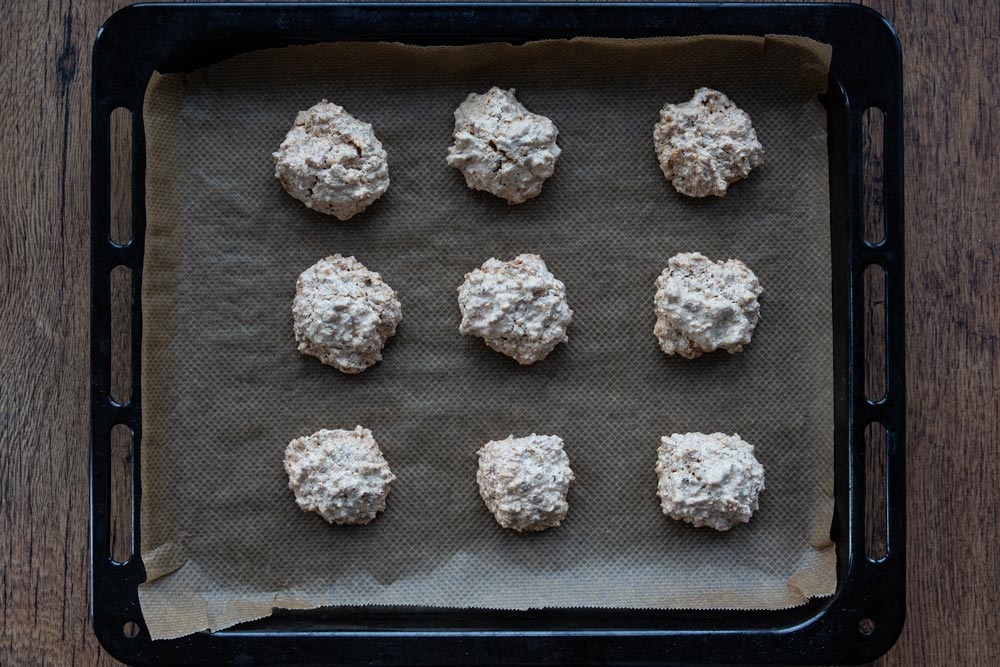

No Comments